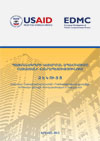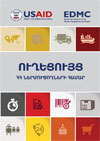HACCP – ISO 22000
ISO 22000 is the International Food Safety Management Standard.
It combines and supplements the core elements of ISO 9001 and HACCP to provide an effective framework for the development, implementation and continual improvement of a Food Safety Management System (FSMS).
Increasing consumer demand for safe food has led many companies to develop both food quality and safety management systems, based on the Hazard Analysis and Critical Control Point (HACCP). In 2001, ISO started the development on an auditable standard, which further defines HACCP’s role in food safety management systems and culminated in the newly formed ISO 22000. The ISO 22000 standard intends to define the food safety management requirements for companies that need to meet and exceed food safety regulations all over the world. One standard that encompasses all the consumer and market needs. It speeds and simplifies processes without compromising other quality or safety management systems.
ISO 22000 is an international certification standard that defines the requirements of food safety management systems. It can be used by all organisations, in the supply chain - from farmers to food services, to processing, transportation, storage, retail and packaging.
ISO 22000 creates a harmonised safety standard that’s accepted the world over. By integrating multiple principals, methodologies and applications, ISO 22000 is easier to understand, apply and recognise. That makes it more efficient and effective as an entry-to-market tool than previous combinations of national standards.
ISO 22000 specifies the requirements for a food safety management system that combines well-recognized key elements to ensure food safety along the food chain, up to the point of final consumption:
- Provide interactive communication, internationally and across the supply chain.
- Compliance with the HACCP principles – Hazard Analysis, Identify Critical Control Points (CCP’s), Establish Critical Links, Monitor CCP’s, Establish Corrective Action, Record Keeping, Verification.
- Harmonise the voluntary and prerequisite standards.
- Create a structure that’s aligned with ISO 9001:2008.
- System management.
- Process control
Benefits of HACCP – ISO 22000:2005 certification
- Customer satisfaction - through delivery of products that consistently meet customer requirements including quality, safety and legality
- Reduced operating costs - through continual improvement of processes and resulting operational efficiencies
- Operational efficiencies - by integrating pre-requisite programs (PRP’s & OPRP’s), HACCP with the Plan-Do-Check-Act philosophies of ISO 9001 to increase the effectiveness of the Food Safety Management System
- Improved stakeholder relationships - including staff, customers and suppliers
- Legal compliance - by understanding how statutory and regulatory requirements impact the organization and its customers and testing compliance through internal audits and management reviews
- Improved risk management - through greater consistency and traceability of product
- Proven business credentials - through independent verification against recognized standards
-
Ability to win more business - particularly where procurement specifications require certification as a condition to supply








